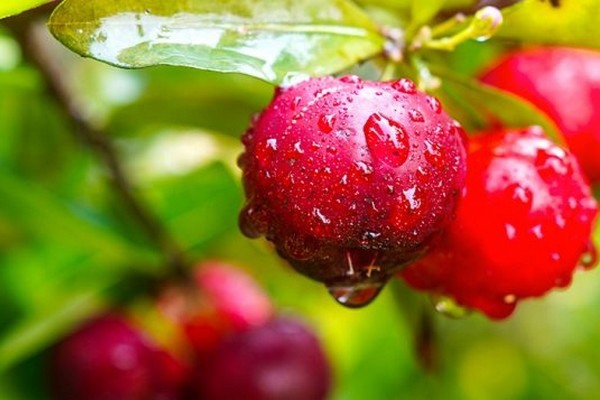Acerola, also known as Barbados cherry, is valued for its nutritional profile and grows in the Caribbean, Mexico, Brazil, and other parts of Central and South America. University of Florida (UF) researchers are collaborating with a Brazilian specialist to expand the genetic understanding of this fruit and explore its cultivation in Florida.
According to the Centers for Disease Control and Prevention, only one in ten American adults meets the recommended fruit and vegetable intake. Acerola is consumed fresh by some Florida residents who grow the trees in their yards. The fruit is a source of vitamin C, carotenoids, anthocyanins, and phenolic compounds with antioxidant and anti-inflammatory properties. One cup can provide over 1,800% of the daily recommended vitamin C intake.
 © University of Florida
© University of Florida
Scientists from the UF Institute of Food and Agricultural Sciences (UF/IFAS) are evaluating acerola's genetic diversity and adapting cultivation practices to Florida conditions. "These nutritional benefits have elevated acerola to superfood status, making it marketable for fresh consumption, desserts, supplements, or juice," said Felipe Ferrao, who is leading the UF/IFAS project. "They can contain up to 100 times more vitamin C than oranges, making them a powerful candidate for enhancing and supplementing our diet."
The team is conducting field trials in three locations: the UF/IFAS Plant Science Research and Education Center in Citra, a farm in Pierson, and the UF/IFAS Tropical Research and Education Center (TREC) in Homestead. These trials aim to determine how different acerola types perform in varying climates, soils, and management systems, with results intended to support future production strategies.
"Our central goal is to determine the best regions and practices for growing acerola, while understanding how climate conditions influence fruit quality and nutritional value," Ferrao said.
Acerola is also being considered as a possible alternative crop for citrus and avocado producers. "As citrus and avocado growers struggle, UF/IFAS must help farmers grow more emerging crops," said Ferrao, noting that 90% of Florida's oranges are used for juice. He suggested growers could use existing citrus juice infrastructure to process acerola juice.
Collaborators include UF associate professors of horticultural sciences Patricio Muñoz and Ali Sarkhosh, as well as TREC-based professor and tropical fruit Extension specialist Jonathan Crane and assistant professor of tropical fruit breeding and genetics Jugpreet Singh. The project also involves Flavio França, an acerola researcher from Embrapa Semiarido in Brazil.
"While Brazil is the top producer of acerola, the University of Florida has an important role," said França, referring to the 'Florida Sweet' acerola grown at TREC in the 1950s.
The research group anticipates that combining improved management, genomic tools, and breeding techniques will speed up the identification of acerola plants with desirable flavor, higher yield, and nutritional value. "We envision acerola as a viable crop for the agricultural future, contributing to economic growth and food security," Ferrao said.
For more information:
Brad Buck
University of Florida
Tel: +1 656 347 8422
www.blogs.ifas.ufl.edu
